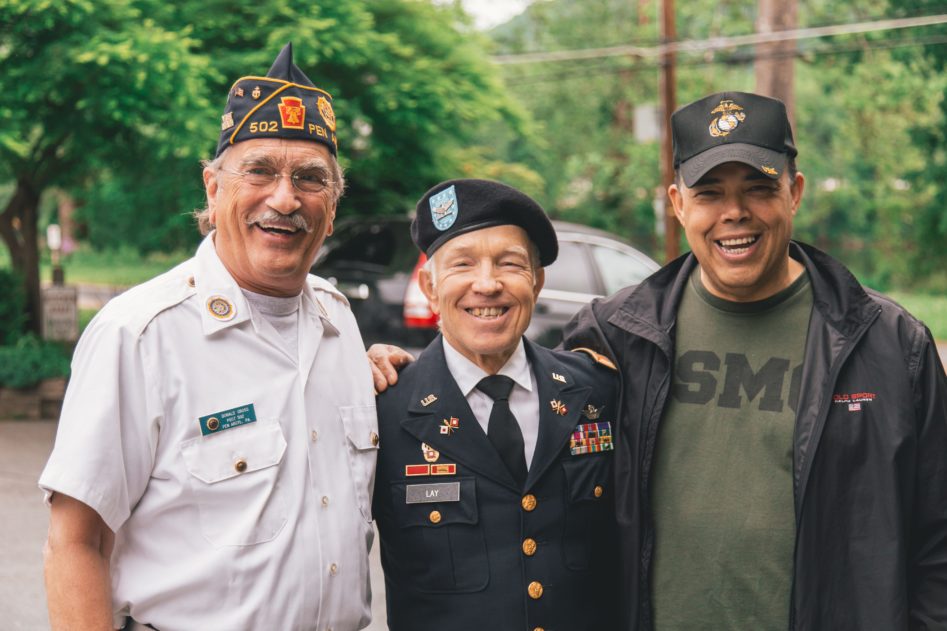Navigating Parkinson’s disease (PD) can come with many surprises for the person living with the disease and those who love them. Since Parkinson’s progresses, symptoms often begin to complicate daily activities as a person progresses through the stages of PD. Learning how to manage Parkinson’s is a constantly evolving learning curve that should always be modified to best suit both the needs … Read More
Checklist: Hiring a Home Care Provider
Most people prefer to be cared for in their home rather than a nursing home but finding a home care provider for you or a loved one can be daunting. The following are some things to keep in mind when looking for a caregiver. Level of care The first thing to consider is what level of care is needed. This … Read More
It’s Medicare Open Enrollment Time: Is Your Plan Still Working for You?
Every year Medicare gives beneficiaries a window of opportunity to shop around and determine if their current Medicare plan is still the best one for them. During Medicare’s Open Enrollment Period, which runs from October 15 to December 7, beneficiaries can freely enroll in or switch plans. During the seven-week period, you can return to traditional Medicare (Parts A and B) from a … Read More
FDA Fast-Tracked New Alzheimer’s Treatment to Mixed Reviews
Alzheimer’s is a debilitating brain disorder affecting memory and, eventually, language, reasoning, and social behavior. Diagnosed in nearly 6.2 million Americans, Alzheimer’s is a progressive, irreversible disease with treatments mainly focusing on symptoms, such as delaying memory loss, and not the underlying cause—that is, until now. In June of 2021—just in time for Alzheimer’s Awareness Month—the U.S. Food and Drug Administration (FDA) … Read More
President Biden Proposes Billions in Increased Funding for Home Health Care
President Biden has introduced a plan to spend $400 billion over eight years on home and community-based care for the elderly and people with disabilities. The money would go to expand access to care and support higher-paying caregiving jobs. As the elderly population grows, our long-term care system is becoming increasingly strained. The AARP found that in 2020, more than … Read More
How You Can End Up in Medicare’s Doughnut Hole, and How You Get Out
Medicare prescription drug (Part D) plans can have a coverage gap—called the “doughnut hole”–which limits how much Medicare will pay for your drugs until you pay a certain amount out of pocket. Although the gap has gotten much smaller since Medicare Part D was introduced in 2006, there still may be a difference in what you pay during your initial … Read More
Do It, Teach It, Lead It: National Healthcare Decisions Day 2021
Guest Blog By Jennifer O’Brien Photo by Lori Sparkman Originally published April 16, 2021 About a thousand years ago, I was the administrator for an otolaryngology department. The department put on a CME course on endoscopic sinus surgery, that attracted everyone from PGY1s to seasoned, community surgeons because it included a cadaver head lab and numerous didactic sessions, culminating with a … Read More
How to Spot the Signs of Elder Abuse
Elder care can be challenging for families to navigate. Whether they arrange care at home or decide to move a loved one into a facility, families want to make sure their loved ones are well cared for. Unfortunately, elders’ social isolation, mental impairment (such as in instances when they are facing dementia), and reliance on others for care makes them … Read More
Why Now is the Time to Start (Or Refresh) Your Estate Plan – And How to Get Started
There are any number of reasons why people put off their estate planning. We’ve heard it time and again: I do not need a will. I am young, I am healthy. I cannot afford it right now. I do not have that many assets. My family knows what I want. I trust my new spouse to take care of my … Read More
What is a MOST Form and Do I Need One?
MOST is an acronym for “medical orders for scope of treatment” and is specific to New Mexico. A MOST form is a great tool for outlining patients’ wishes for medical interventions and end-of-life care when individuals have a serious or life-threatening illness. It consists of a set of medical orders which are integrated into the patient’s medical record and are … Read More
Is a Power of Attorney Right for a Person with an Intellectual or Developmental Disability?
Not every person with an intellectual or developmental disability is unable to make health care and/or financial decisions. The impact and spectrum of disabilities varies widely from person to person and diagnosis to diagnosis. One person with Down Syndrome may be capable of decision-making while another may not, just as a person with autism may be capable of decision-making while … Read More
Final Regulations Applicable to Eligibility for VA Needs-Based Benefits
The U.S. Department of Veteran Affairs (VA) proposed new regulations in 2015 regarding net worth, asset transfers, and income exclusions for needs-based VA benefits. These regulations have been finalized and are effective as of October 18, 2018. A couple of the most significant changes are highlighted below: New bright-line evaluation of net worth; New 36-month look-back period for asset transfers. … Read More
Care-Taker Roles Reverse
Generally speaking we don’t plan on spending a Saturday afternoon in the local Emergency Department. However, as parents age, we as their adult children find ourselves more and more in the care-taker role, which often means accompanying them to doctor’s appointments and sometimes to the Emergency Department. As I sat with my mother and father in the Emergency Department on … Read More
Medicare Eligibility After Hospital Observation Status
Hospitals must now give Medicare recipients notice when they are in the hospital under observation status. The notice requirement is part of a law enacted in 2015 but that just took effect. Signed by President Obama in August 2015, the law was intended to prevent surprises after a Medicare beneficiary spends days in a hospital under “observation” and is then … Read More
The Alzheimer’s Association Report – Increasing Costs and Impact
The Alzheimer’s Association released a report on March 7, 2017 with updated statistics related to the number of Americans with Alzheimer’s dementia and the growing cost and impact of the disease on families and the economy. Some startling findings: Unless a cure or improved treatments are discovered, the number of people age 65 or older with Alzheimer’s dementia may nearly … Read More
Medical Treatment for the Elderly – Less Can Be More
Sometimes, what may be considered “best medical practices” is not in our elderly family members’ best interest. I’m not talking about the so-called “death panels” used to frighten the public about universal health care. Rather, I’m talking about the toll that hospitalizations can take on our elderly population. A recent study showed that about one-third of patients over 70 years … Read More
Moving to a New State Can Get Complicated
Posted on July 5, 2016 by The Arc. To read the original article, please click HERE. By Wendy H. Sheinberg, CELA written for The Arc in partnership with the Special Needs Alliance. Moving to another state is a challenge for most families. If a family member has disabilities, that challenge is even greater. State benefit programs vary, and states administer federal programs at … Read More
Organ Donation – Best to Include in Advanced Health Care Directive
Organ donation can be a difficult subject to discuss with family members, and can be an even more difficult subject when family members are faced with the decision after a loved one’s death. However, donating an organ or even a whole body for scientific study, medical education. or to save the life of another can be an important part of … Read More
Illness & Suffering: A Cat’s Viewpoint of the Medical System
My cat Jaspurr stopped eating sometime in the fall of 2015. I did not notice this because the other cat was finishing up the left overs in all the dishes. But I finally did notice when he became emaciated to the point that he was skin, bones and fur. I took him to the vet. The vet took blood and … Read More
Protect Yourself and Your Loved Ones From The Flu
It’s that time of year – flu season! The Centers for Disease Control and Prevention (CDC) recommend getting a flu shot annually. Please see the questions and answers below regarding flu vaccines and other vaccines. Q: Why do we need a flu shot every year when we only have to get a tetanus shot every ten years or a pneumonia … Read More
Happy 50th Anniversary Medicaid!
July 30, 1965, President Johnson signed the Social Security Amendments of 1965 into law. This law created not only Medicare, but also Medicaid. Medicaid is the joint state and federal health insurance program for low-income people and also allows seniors and people with disabilities get the long-term care they need. Needless to say, Medicaid has become an integral part of … Read More
Being Mortal by Atul Gawande
In his latest book – Being Mortal – Dr. Atul Gawande explores disability, diminished capacity and the onset of dementia, not as medical issues but as the natural processes of aging. He urges his readers to confront their own anxieties and reexamine their relationships with their loved ones as life forces them to abandon their independence and become dependent upon others. Meaning … Read More
A Loved One Has Just Been Diagnosed With Dementia, What Should You Do?
Realizing that a loved one has dementia is heartbreaking and overwhelming and most families find that there are many more questions than answers. One of the best initial steps families can take is to contact their local Alzheimer’s Association chapter. The New Mexico chapter has locations in Albuquerque, Santa Fe, Las Cruces, Farmington and Roswell. You will not find … Read More
In Health Care, Where Does All the Money Go?
I really do not know the answer to this question. But now that I have your attention, let me talk about two articles that appeared recently. The first article is titled “With health care, like anything else, we get what we pay for,” which appeared in a February 7, 2011, column by Winthrop Quigley in the Albuquerque Journal. In that … Read More
















